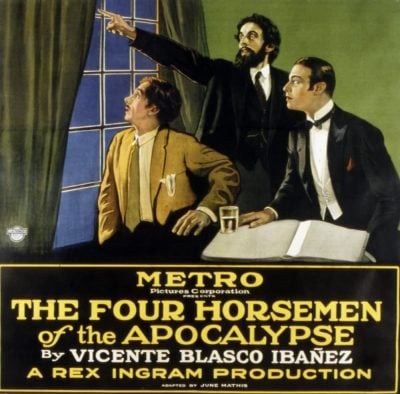
Director: Rex Ingram
Writer: June Mathis
Based on the book:
The Four Horsemen of the Apocalypse by Vicente Blasco Ibanez.
Composer: Louis F. Gottschalk
Released: March 6, 1921
Budget: $800,000
Box Office: $9.2 million
Cast:
Rudolph Valentino
Bridgetta Clark
Pomeroy Cannon
Alice Terry
Josef Swickard
Wallace Beery
Breakdown:
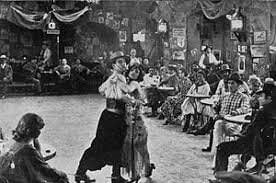
The film opens with the story of Madariaga, “The Centaur.” The Centaur is a self-made millionaire in Argentine. Making his fortune in cattle and other land opportunities, Madariaga enjoys a simple lifestyle with his two daughters and their husbands. The youngest daughter is married to a German who her father hates. In fact, when the two were to be married, The Centaur protested. However, love won in the end, and the daughter was married and had three children with the German. His eldest daughter, however, married a Frenchman who Madariaga greatly liked. The only reason he tolerates the German, in fact, is because the Frenchman pleads on the Germans’ behalf.
After seven years of marriage, it seems the oldest daughter is finally going to have a child. This worries her younger sister and the German because up until now, the massive fortune that their father will leave behind would likely go to their oldest son. They pray that the new child is born a girl, but fate did not look kindly on them this day, for the baby was born and a son was given. They named the child Julio, and he instantly became The Centaur’s favorite grandchild.
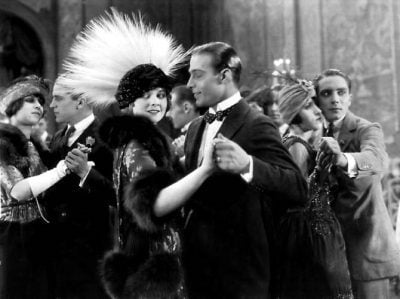
As the years roll past, Julio and his grandfather grow ever closer. Even in his twilight years, Madariaga enjoys going out on the town at night with Julio. The latter has grown into a very distinguished young man. On one of these outings, Julio wins the heart of a beautiful dancer showcasing his brute force by punching her date and wooing her with his sultry tango moves. After they embrace each other on the dancefloor to the thunderous applause of the entire bar, the dancer joins Julio at his table with his grandfather. The latter seems to be having the time of his life.
While the party is slamming drinks and sharing pleasantries, Madariaga seems to have taken on a bit more than he can handle, and he slides out of his chair and onto the floor. The dance finds this humorous and begins pointing and laughing at the old man, much to the dismay of Julio, who flings her off of his lap that he may go to the aid of his grandfather. While he is being helped back to his feet, Madariaga tells his grandson he can no longer come with him on these trips. He is now too old.
Shortly after this night, The Centaur, now home-ridden, decides to teach his granddaughter, Julio’s younger sister, to tango. Their mother is not happy with this, and a long discussion about how Julio is being brought up. He seems to be going out a lot and living a wild lifestyle. The grandfather, however, assures the mother and their French father that there is no need to worry, “youth must have its flings.” However, the German son-in-law is raising his family to learn and follow the teachings of his homeland, Germany. The way of men being trained for war. While they discuss the ways of their land, one of the sons says he heard The Centaur is growing old and wanting to make some changes to his will. They are worried he will be leaving all of his wealth to Julio. The German father is not concerned for Julio is wasting his youth in their eyes.
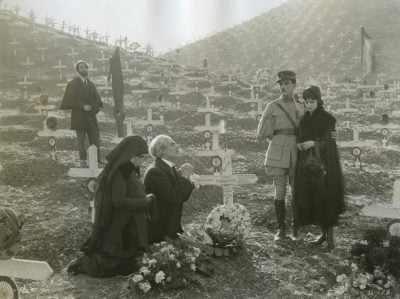
The next day The Centaur dies while out riding his horse. The will is read, and it is determined that the entire fortune be split between his two daughters. Julio feels cheated because he was told he would inherit the whole estate. An argument breaks out between the two sons-in-law about the German disposing of his shares and going back home to his own country. The Frenchman sees this as disrespectful to The Centaur. With a split in the family, the German son-in-law takes his family back home to Germany, while the Frenchman takes his to France.
Julio, now living in Paris and studying art, mainly spends his time dancing in local venues. It is not long before he falls in love with a married woman, Marguerite Laurier. Marguerite, and fortunately for Julio, is not in love with her husband, Etienne Laurier. The two were married in an arranged marriage. When her husband, who is much older than Marguerite, learns of his wife’s affair with Julio, he gives her a divorce out of fear and shame of a scandal. However, the love of the two does not last long as the great war breaks out and Marguerite must leave to become a nurse in the war.
While she is working in a hospital, her ex-husband, Etienne, is admitted due to a war injury that has left him blind. Word spreads of his great bravery, and Marguerite begins tending to his medical needs. Julio, learning of this, feels like he has wasted his time and youth and decides to enlist in the war efforts.
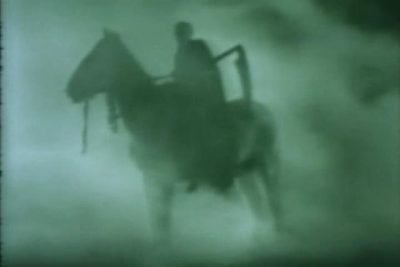
After years in the war, Julio has matured and become the man everyone wanted him to be. His bravery is known throughout the ranks of the military. While on the battlefield, he comes face to face with one of his cousins whom he had not seen since the family split. The two hold guns on one another, but the reunion is cut short as both are unfortunately killed together by a shell. Julio, however, is not finished with his good works. His spirit visits a now depressed Marguerite who is on the verge of leaving her blind Etienne. Julio convinces her that Etienne needs her and she should stay with him.
The famous last scene shows Julio’s father grieving over his son’s grave. A man comes to him, and the father asks him if he knew his sons. The man stretches his arms out and looks around at all the graves while he shouts that he knew all of them. He then helps the grief-stricken father to his feet and points to the sky, where one can see the four horsemen riding into the clouds. “Peace has come—but the Four Horsemen will still ravage humanity—stirring unrest in the world—until all hatred is dead and only love reigns in the heart of mankind.”
The Four Horsemen of the Apocalypse is thought to be the first anti-war film ever made. Five years later, Battleship Potemkin would come out and become the flagship film (so-to-speak) for anti-war cinema. However, the effect that the four-horseman had on film culture is nothing less than massive. The film was one of the top-grossing silent films ever made, and its impact can be felt in the way storytelling is displayed on film even today. This film also had a significant impact on women working in the industry. It helped to make June Mathis one of the most powerful and highest-paid women in Hollywood. The film is also responsible for the culture explosion of the tango dance.
Written exclusively for TheLastPicture.Show by Jacob Ruble
Disclosure: The links on this page are “Affiliate Links” and while these are shown at no costs to our viewers, they generate commissions for our website(s)


